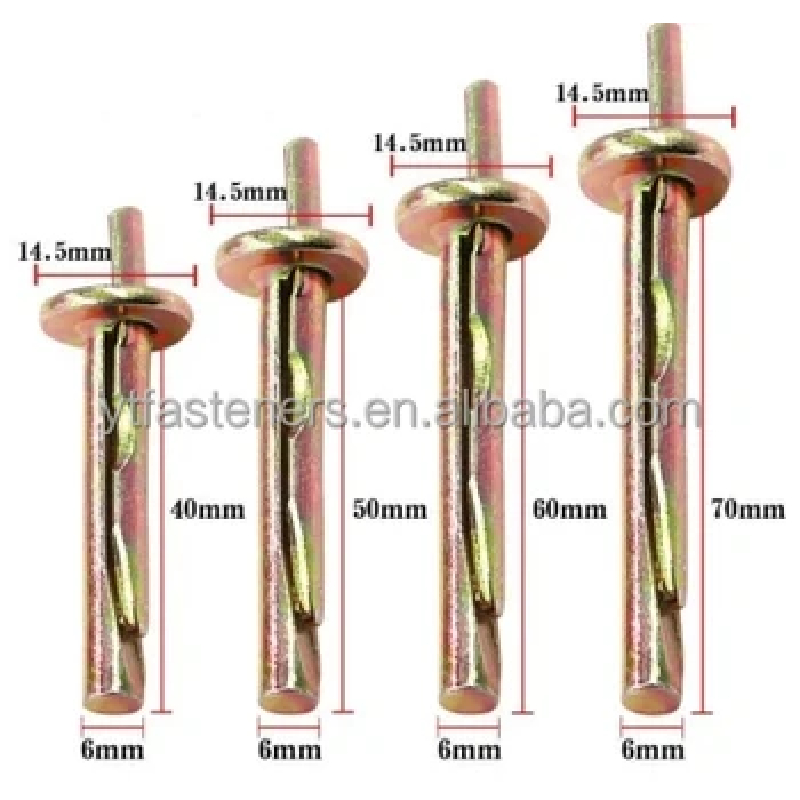Dec . 09, 2024 14:53 Back to list
anchor bolt nut
Understanding Anchor Bolt Nuts Their Importance and Applications
When it comes to construction and building projects, anchor bolts play a crucial role in ensuring the stability and durability of structures. Among the myriad of components that make up these anchoring systems, anchor bolt nuts are essential for maintaining the integrity and safety of structures. This article dives into the significance, types, and applications of anchor bolt nuts, exploring how they contribute to the overall effectiveness of anchoring systems.
What Are Anchor Bolts?
Anchor bolts are specialized metal rods used to secure structures to concrete. They are typically installed in concrete foundations and serve as a means of affixing objects such as machinery, equipment, or structural elements to the ground. The performance of anchor bolts heavily relies on the type of nut used in conjunction with them. The anchor bolt nut is crucial in ensuring that the connection remains secure over time, accommodating the stresses and strains that may be exerted upon it.
Types of Anchor Bolt Nuts
Anchor bolt nuts come in various types, each designed for specific applications and conditions. Some of the most common types include
1. Hex Nuts Perhaps the most traditional form, hex nuts have six sides and provide a solid grip for anchoring. They are versatile and can be used in various applications, from construction to automotive.
2. Lock Nuts Designed to prevent loosening due to vibrations, lock nuts are essential in dynamic environments where movement is expected. They can be of various designs, including nylon-insert lock nuts and serrated flange nuts.
3. Acorn Nuts Also known as cap nuts, these nuts have a dome-shaped end and are primarily used for aesthetic reasons. They also provide protection to the threads of the bolt, preventing debris from entering.
4. Coupling Nuts These are elongated hexagonal nuts designed to connect two pieces of threaded rod. They are especially useful in situations where extended lengths of conduit or rods are necessary.
5. T-nuts Often used in wood applications, T-nuts allow for easy access to the bolt for adjustments or replacement without damaging surrounding materials.
anchor bolt nut

Applications of Anchor Bolt Nuts
The applications of anchor bolt nuts are vast and varied, reflecting the diverse nature of the industries that utilize them
. Below are some prominent applications- Construction In building frameworks, anchor bolt nuts secure the structural components, ensuring that the edifice can withstand environmental loads such as wind and seismic activity. Scaffolding and bracing systems also frequently employ anchor bolt nuts to maintain stability.
- Infrastructure Bridges, roadways, and tunnels use anchor bolts and nuts to secure various structural components, ensuring that they remain operational over time.
- Manufacturing and Warehousing In industrial settings, machinery and heavy equipment are often anchored to concrete floors using anchor bolts and nuts to prevent movement and enhance safety.
- Furnishing and Fixtures From streetlights to playground equipment, anchor bolt nuts are used in nearly every facet of public infrastructure, ensuring that fixtures remain securely in place.
Importance of Quality Anchor Bolt Nuts
The quality of anchor bolt nuts cannot be understated. Poorly manufactured nuts can lead to failures over time, jeopardizing the safety of structures and potentially leading to costly repairs or worse, catastrophic failures. It’s crucial to select high-quality nuts made from durable materials that can withstand the environmental conditions they will face, whether they be corrosion, extreme temperatures, or mechanical stress.
Conclusion
Anchor bolt nuts may seem like a small component in the grand scheme of construction and manufacturing, but they play an indispensable role in creating safe and robust structures. Understanding the types, applications, and importance of these nuts enables engineers, builders, and manufacturers to make informed choices, ultimately ensuring the reliability and safety of their projects. As the industry progresses, advancements in materials and manufacturing processes will likely enhance the performance and durability of anchor bolt nuts, further solidifying their place in the foundation of modern construction.


